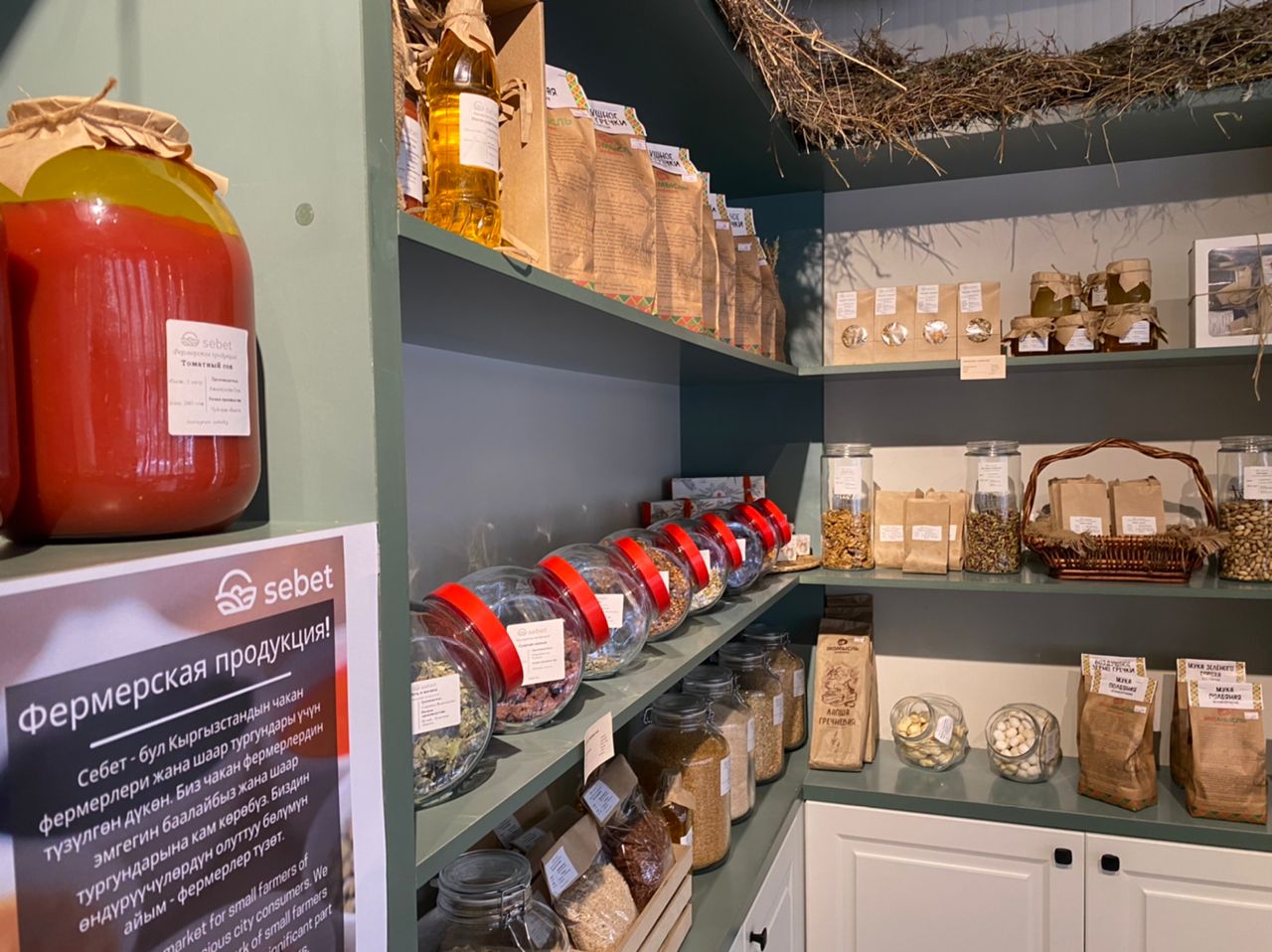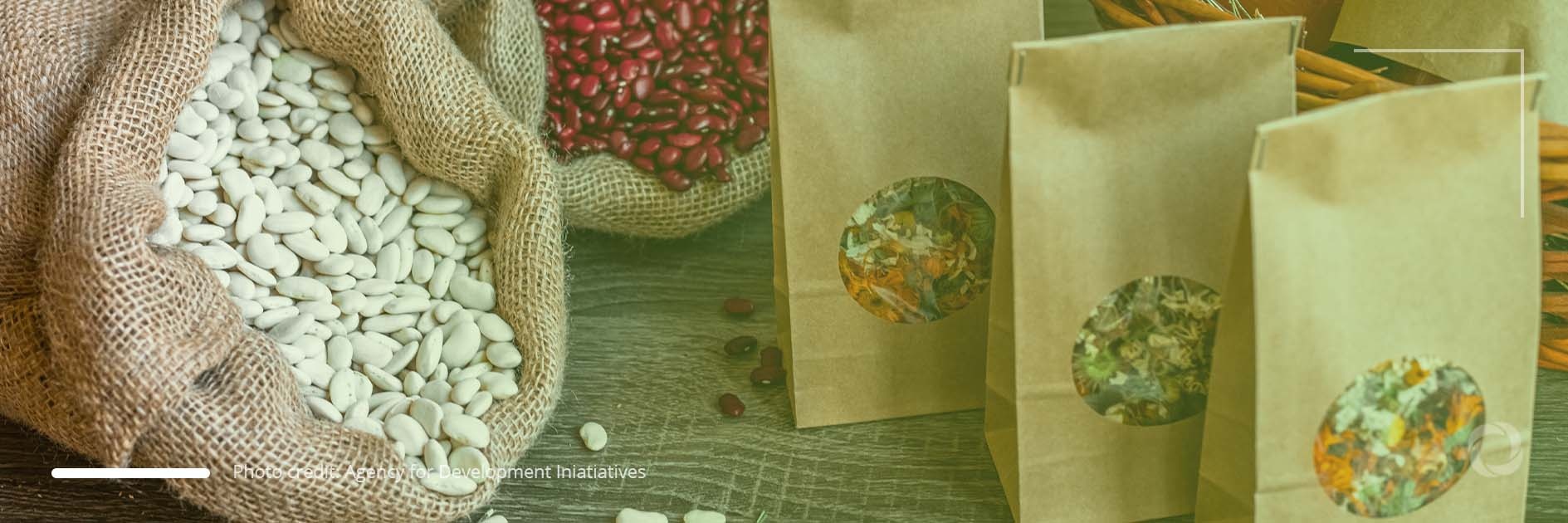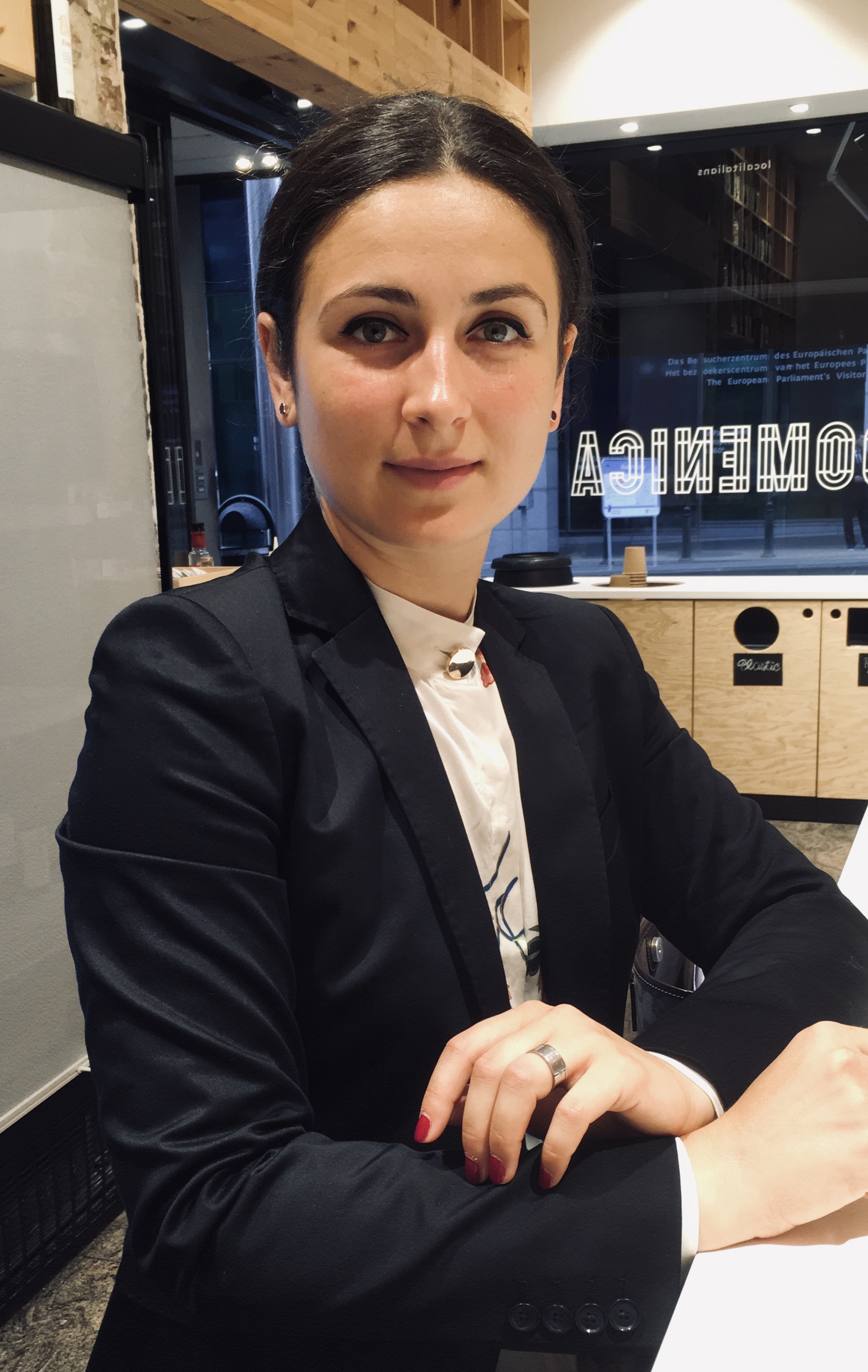Conventional food systems have evolved with large producers and large volumes hindering the access to market by small farmers who supply small volumes of a variety of foods. At the same time, the fresh food products offered by regular shops and supermarkets often provide little or no information at all about their origins while consumers are increasingly searching for responsibly sourced products. The Agency of Development Initiatives has been helping to restore the lost connection between producers and consumers by enabling fresh produce from the local Kyrgyz farmers to be delivered to the residents of the capital, Bishkek, thus responding to the needs of both sides. In an exclusive interview with DevelopmentAid, Madina Sadirdinova and Aida Jamangulova from the NGO Agency of Development Initiatives shared an experiment by the agency which attempts to address the double challenge of current food systems.
Hard-to-get access to market
Small farmers face a range of challenges in current food systems. Partially isolated from cities, sometimes they do not know where and how they can sell their produce. Moreover, by producing small volumes of different products they also have limited access to markets. Transport costs for small quantities are high which increases the final price of the product. A more centralised approach could help to address this challenge as instead of each individual farmer transporting or sending products to the city, there would be one entity collecting it and offering consumers a place where they may find a variety of fresh local goods.
Working side by side with small producers, the Agency of Development Initiatives (ADI) came to understand this challenge:
“As farming is the main activity of these people and their main source of income, not being able to sell products represents a significant challenge,” says Aida.
She goes on to explain that most of these farmers are small producers growing food primarily for their own consumption:
“It is the problem of those small farmers in Kyrgyzstan who cannot achieve high volumes of production, who produce in the backyard of their house or on a very small parcel of land. They produce potatoes, tomatoes, and they process them but cannot sell them.”
Helping both producers and consumers
Being based in Bishkek, ADI keeps in touch with city residents and is well aware of their need for fresh local food from the Kyrgyzstan farmers.
“Urban residents are becoming very responsible consumers, and understand that ecological products cannot be produced inside the city where there is a lot of pollution. At the same time, by buying vegetables, fruits, and dairy in ordinary shops they cannot be sure that goods are safe and ecologically pure,” adds Madina.
People from the city also face problems ordering food from rural producers on an individual basis as this significantly increases the costs of the transaction.
“So, producers couldn’t send the food and consumers could not order it,” explains Madina.
In fact, such a challenge faced by both producers and consumers exists in many countries and is becoming an opportunity for different organizations. One such example is Kazakhstan.
See also: Cow on a balcony’ – a business opportunity for Kazakh rural women
Online vs real-life experience

In order to help both consumers and producers, the agency organized a farmers’ shop in the capital under the name ‘Sebet’ (the basket) which was initially an online platform where farmers could register and participate. The platform, however, did not work as consumers lacked experience.
“Consumers wanted to try, touch, and smell the product before they bought it,” says Madina.
Therefore, the agency realized that there was a need for an offline shop with a real-life experience for consumers. That is how Sebet came into existence. The shop opened in December 2021 with another one now already open in the residential part of the city. It offers customers ecologically-friendly produced food from local farmers. The shop is very selective in its choice of producers. They must be local Kyrgyzstan farmers (from any region) and must be small producers in need of access to market. In spring, the shop hopes to attract more growers to their project. At the moment there are 10 suppliers from five regions of Kyrgyzstan. Almost all are farmers from the local female seed-saving network ‘Dyikan Muras’ who the agency has already worked with for years. The goal is to attract as many as possible to the initiative.
It is worth noting that the suppliers do not have organic certification. However, the members of the Dyikan Muras network apply the Participatory Guarantee System approach. The shop also takes its inspiration from Community-Supported Agriculture where trust lies at the heart of the established consumer-grower relationship:
“We want to develop it. We want our consumers to know the farmers whose products they purchase.”
The agency is currently working on information which the shop can offer to its customers. This would include a photo of the farmer, the region they come from, and what and how they produce.
The shop offers a wide range of both fresh and processed products including dried tomatoes, apples, and eggplants. Collaboration with female producers outside the network allows the shop to also offer ecological grains and nuts from the agency’s partners. The product range is gradually increasing as the shop finds more responsible suppliers.
It is also important to note that the product range will change according to the season. That is in fact one of the main characteristics of ecological products – seasonality. This requires less water and other resources to be used because ripening occurs in accordance with natural cycles and is not forced by artificial conditions or synthetic chemical substances.
Social enterprise to promote solidary economy
The Sebet shop is a social enterprise. Thus, the partnership with the private sector has helped the agency to implement this idea. The shop is located within a cafe with the same concept which is ‘from field to table’ aiming to bring the taste of local products to city residents. Thus, the majority of the products used by the café are sourced from the farmers’ shop giving the customers of the latter the opportunity to taste the products as part of their normal menu. The members of the café team are all informed about the concept and can provide quality information to their customers. They also help the agency to manage the shop in terms of ordering, stocks, and selling. This helps to support the initiative until it becomes better known and achieves a certain degree of sustainability.
“We try to show that the marketing of products coming from small producers can be sustainable but of course, it needs a bit of time,” says Madina.
Another very important aspect of the enterprise is the price range. Even though all the products in the shop are ecologically friendly, their prices do not vary very much from those on the regular market (which is still not the case for many eco-products). Unlike the fierce competition that suppliers to supermarkets face, the purpose of this enterprise is to make sure farmers get a fair price for their products which at the same time is affordable for consumers. The agency collaborates with producers in order to establish a fair but also accessible price.
“Our agency is against the system where ecological products are accessible only to one class. They need to be accessible to everyone,” underlines Madina.
See also: Lynne Davis: food sovereignty is about communities taking control of their food systems


